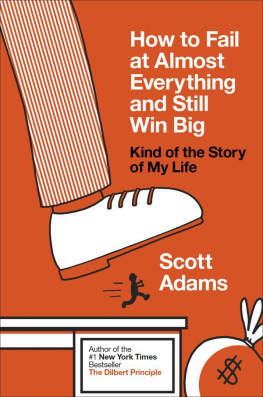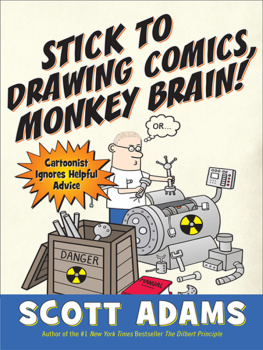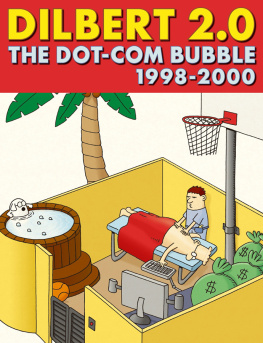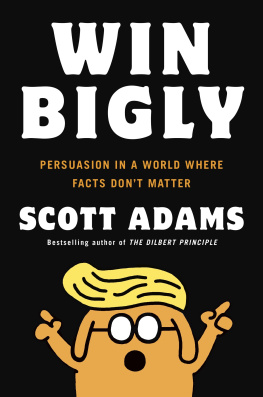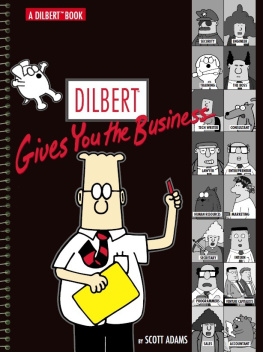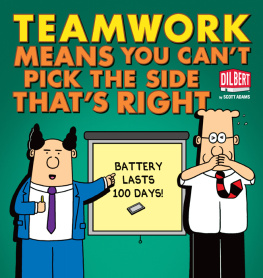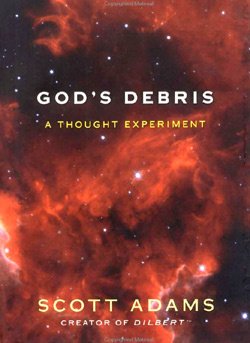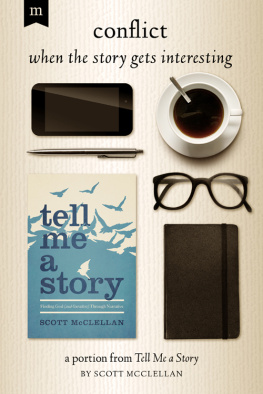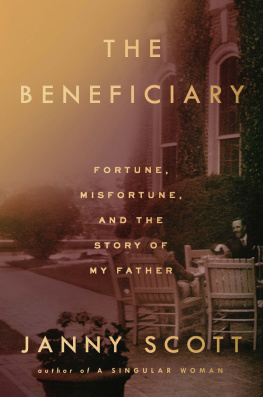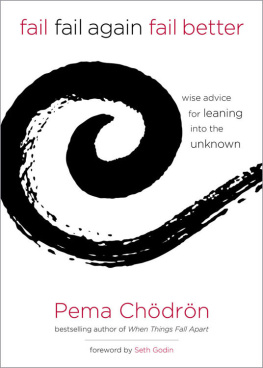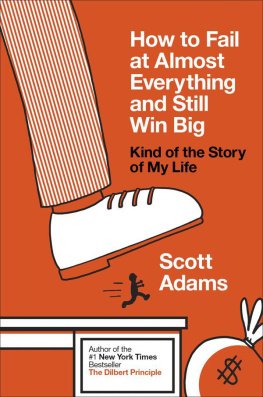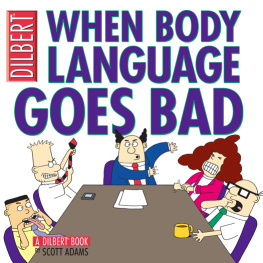Scott Adams - How to Fail at Almost Everything and Still Win Big: Kind of the Story of My Life
Here you can read online Scott Adams - How to Fail at Almost Everything and Still Win Big: Kind of the Story of My Life full text of the book (entire story) in english for free. Download pdf and epub, get meaning, cover and reviews about this ebook. year: 2013, publisher: Portfolio, genre: Home and family. Description of the work, (preface) as well as reviews are available. Best literature library LitArk.com created for fans of good reading and offers a wide selection of genres:
Romance novel
Science fiction
Adventure
Detective
Science
History
Home and family
Prose
Art
Politics
Computer
Non-fiction
Religion
Business
Children
Humor
Choose a favorite category and find really read worthwhile books. Enjoy immersion in the world of imagination, feel the emotions of the characters or learn something new for yourself, make an fascinating discovery.
- Book:How to Fail at Almost Everything and Still Win Big: Kind of the Story of My Life
- Author:
- Publisher:Portfolio
- Genre:
- Year:2013
- Rating:3 / 5
- Favourites:Add to favourites
- Your mark:
- 60
- 1
- 2
- 3
- 4
- 5
How to Fail at Almost Everything and Still Win Big: Kind of the Story of My Life: summary, description and annotation
We offer to read an annotation, description, summary or preface (depends on what the author of the book "How to Fail at Almost Everything and Still Win Big: Kind of the Story of My Life" wrote himself). If you haven't found the necessary information about the book — write in the comments, we will try to find it.
How to Fail at Almost Everything and Still Win Big: Kind of the Story of My Life — read online for free the complete book (whole text) full work
Below is the text of the book, divided by pages. System saving the place of the last page read, allows you to conveniently read the book "How to Fail at Almost Everything and Still Win Big: Kind of the Story of My Life" online for free, without having to search again every time where you left off. Put a bookmark, and you can go to the page where you finished reading at any time.
Font size:
Interval:
Bookmark:





Chapter One
The Time I Was Crazy
Chapter Two
The Day of the Talk
Chapter Three
Passion Is Bullshit
Chapter Four
Some of My Many Failures in Summary Form
Chapter Five
My Absolute Favorite Spectacular Failure
Chapter Six
Goals Versus Systems
Chapter Seven
My System
Chapter Eight
My Corporate Career Fizzled
Chapter Nine
Deciding Versus Wanting
Chapter Ten
The Selfishness Illusion
Chapter Eleven
The Energy Metric
Chapter Twelve
Managing Your Attitude
Chapter Thirteen
Its Already Working
Chapter Fourteen
My Pinkie Goes Nuts
Chapter Fifteen
My Speaking Career
Chapter Sixteen
My Voice Problem Gets a Name
Chapter Seventeen
The Voice Solution That Didnt Work
Chapter Eighteen
Recognizing Your Talents and Knowing When to Quit
Chapter Nineteen
Is Practice Your Thing?
Chapter Twenty
Managing Your Odds for Success
Chapter Twenty-one
The Math of Success
Chapter Twenty-two
Pattern Recognition
Chapter Twenty-three
Humor
Chapter Twenty-four
Affirmations
Chapter Twenty-five
Timing Is Luck Too
Chapter Twenty-six
A Few Times Affirmations Worked
Chapter Twenty-seven
Voice Update
Chapter Twenty-eight
Experts
Chapter Twenty-nine
Association Programming
Chapter Thirty
Happiness
Chapter Thirty-one
Diet
Chapter Thirty-two
Fitness
Chapter Thirty-three
Voice Update 2
Chapter Thirty-four
Luck
Chapter Thirty-five
CalendarTree Start-up
Chapter Thirty-six
Voice Update 3
Chapter Thirty-seven
A Final Note About Affirmations
Chapter Thirty-eight
Summary
Scott Adams is the creator of Dilbert, one of the most popular and widely distributed comic strips of the past quarter century. He has been a full-time cartoonist since 1995, after sixteen years as a technology worker for companies like Crocker National Bank and Pacific Bell. His many bestsellers include The Dilbert Principle and Dogberts Top Secret Management Handbook. He lives outside San Francisco.
Im not an expert in any of the topics Ill discuss here. But I am a professional simplifier. My main job for the past few decades has been creating the Dilbert comic strip. Making comics is a process by which you strip out the unnecessary noise from a situation until all that is left is the absurd-yet-true core. A cartoonist has to accomplish that feat with as few as four short sentences. Ive performed that trick nearly nine thousand times, sometimes successfully.
Later in this book I will describe a simplification that can inform all of the steps you take toward your own personal success. Its the human equivalent of profit. Its the one simple thing you can measure that will give clarity to all of the complicated decisions in your life.
I wish I could give you a surefire formula for success, but life doesnt work that way. What I can do is describe a model that you can compare with your current way of doing things. The right answer for you might be some combination of what youre already doing and what you read here. Youre the best judge of what works for you, as long as you acquire that wisdom through pattern recognition, trial, and observation.
In summary, allow me to stipulate that if you think Im full of crap on any particular idea or another, theres a healthy chance youre right. But being 100 percent right isnt my goal. Im presenting some new ways to think about the process of finding happiness and success. Compare them with what you know, what you do, and what others suggest. Every person finds his or her own special formula.
If youre already as successful as you want to be, both personally and professionally, all you are likely to get from this book is a semientertaining tale about a guy who failed his way to success. But you might also notice some familiar patterns in my story that will give you confirmation (or confirmation bias) that your own success wasnt entirely luck. Thats the sort of validation you cant get from your family and friends who see you as a hot mess.
This is the story of one persons unlikely success within the context of scores of embarrassing failures. If youre just starting your journey toward successhowever you define itor youre wondering what youve been doing wrong until now, I expect youll find some novel ideas here. Maybe the combination of what you know plus what I think I know will be enough to keep you out of the wood chipper.
Was my eventual success primarily a result of talent, luck, hard work, or an accidental just-right balance of each? All I know for sure is that I pursued a conscious strategy of managing my opportunities in a way that would make it easier for luck to find me. Did my strategy make a difference, or is luck just luck, and everything else is just rationalization? Honestly, I dont know. Thats why I suggest you compare my story with the stories of other people who found success and see if you notice any patterns. Thats exactly the process I have used since childhood, and either it worked for me or I simply got lucky. Ill never know which it was. If you pick up some ideas in this book and go on to great success, you wont know exactly what made the difference either. But you might think you do, and that reason will probably have something to do with your many levels of awesomeness. Thats how human brains work. But hey, maybe in your case its true. In my case, I prefer to embrace my ignorance and leave it an open question.
This is not an advice book. If youve ever taken advice from a cartoonist, theres a good chance it didnt end well. For starters, its hard to know when a cartoonist is being serious and when he or she is constructing an elaborate practical joke. Ive crafted pranks that spanned years, sometimes when no one was in on the joke but me. Some of those pranks are still percolating. I have posed as other people online and even in person. I once wore a professional disguise and infiltrated a high-level business meeting just to get material for the Dilbert comic strip.
On top of that, Im getting paid to write this book, and we all know that money distorts truth like a hippo in a thong. And lets not forget Im a stranger to most of you. Its never a good idea to trust strangers.
By any objective measure, I might be one of the least credible people on earth. Im not too proud to admit that given a choice between saying whats true and saying whats funny, Ill take the path with the greatest entertainment value.
Im also not an expert at anything, including my own job. I draw like an inebriated howler monkey and my writing style falls somewhere between baffling and sophomoric. Its an ongoing mystery to me why I keep getting paid.
Font size:
Interval:
Bookmark:
Similar books «How to Fail at Almost Everything and Still Win Big: Kind of the Story of My Life»
Look at similar books to How to Fail at Almost Everything and Still Win Big: Kind of the Story of My Life. We have selected literature similar in name and meaning in the hope of providing readers with more options to find new, interesting, not yet read works.
Discussion, reviews of the book How to Fail at Almost Everything and Still Win Big: Kind of the Story of My Life and just readers' own opinions. Leave your comments, write what you think about the work, its meaning or the main characters. Specify what exactly you liked and what you didn't like, and why you think so.

